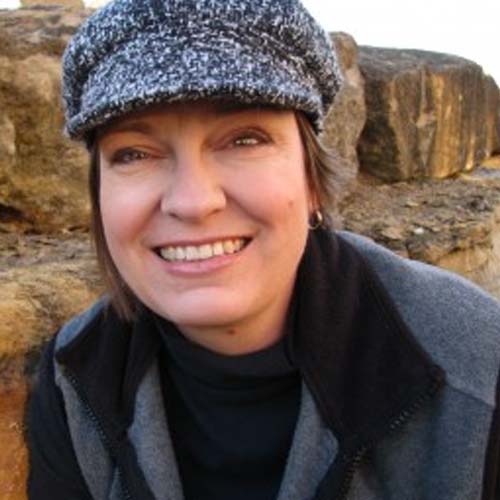Self-Awareness: How Sign Language Interpreters Acknowledge Privilege and Oppression
Stacey Storme presented Self-Awareness: How Sign Language Interpreters Acknowledge Privilege and Oppression at StreetLeverage – Live 2014 | Austin. Her talk lead attendees through an exploration and acknowledgement of the impact privilege and oppression can have on the practice and self-awareness of sign language interpreters.
You can find the PPT deck for her presentation here.
[Note from StreetLeverage: What follows is an English translation of Stacey’s talk from StreetLeverage – Live 2014 | Austin. We would encourage each of you to watch the video and access Stacey’s talk directly.]
Hello! Good morning! I’m thrilled and honored to be here.
My talk today – well, let’s go ahead and show the title first.
Self Awareness: How Sign Language Interpreters Acknowledge Privilege and Oppression
While I was preparing for this talk today, I told myself that while I was standing here, I needed to remember that feeling of sitting down, having a conversation in my living room. That feeling is imperative because my talk today is a conversation I have already had with any number of people who are here in the room today. We’ve had those deep discussions and even though I haven’t necessarily been a part of them with every one of you, many of you have had these conversations, as well. Whether you have them after a conference with someone in the bar or in your hotel room, in your own living rooms, or wherever, these kinds of conversations are happening. While I may not be presenting totally new information today, you may come to a deeper understanding of the topic or have some moments to reflect on your own experiences. That’s my hope. At the root of it, I really just want to share my thoughts. That’s what StreetLeverage is all about. So, I had to remind myself that we are here to have a conversation.
Privilege and Influence
Before I begin, there are two important concepts to talk about. The first is something that is present in our daily life – we see it, read about it, and discuss it. The English word is privilege. How we sign that concept varies depending on the situation, the context we are talking about. [Sign selections start at 1:51 on the ASL video clip.] The fact that there are so many ways to talk about this is indicative of the richness of the concept. One sign cannot encompass the meanings inherent in the concept of privilege. The other concept is influence. [Sign options at 2:14 on the ASL video clip.] Again, this concept can be conveyed with a number of different signs based on what we see while we are working. Both of these concepts will come up throughout my talk today, as will the various signs we might choose for them. It’s important to recognize the complexities of both of these concepts and the choices we make when we are using ASL to talk about them.
Before I get too far, I feel it is important to let you know who I am. I know many of you here. I’m honored to call many of you friends. Some of us may know a little bit about each other’s stories, as well. If we were actually sitting in a living room together, we would know more about each other. With that in mind, I wanted to first show you a little bit about myself, about how I came to be in this world.
My Background
My sister is Deaf, so I chose photos of my sister and I as we were growing up. The one on the right was just taken last week. So, you see my sister there.
My sister is five years older than me. Both my parents are hearing. When my mother was sixteen, she got pregnant with my sister. When she was born, my sister had some other medical issues. My mother had been ill with the measles as was common at the time in 1964. So, they went through all of that with my sister. When she was about two and a half years old, they realized she was deaf. After that happened, they went through a number of things until, eventually, to make a long story short, they did some research and found Total Communication, a prevalent communication system at the time. It was a new system and spreading as mainstreaming was becoming more common. My parents did some research and found a school in Colorado, moved the family there and were on their way. My parents really immersed themselves – I’m so grateful to them for that – they didn’t really know what to do, but they both started learning to sign. At the time, that was the communication system available to them. They started on that path and about three years later I was born.
That was my world. My parents had been attending a support group with a bunch of other parents. They brought their children, so I got to be around them when the parents got together. While my parents were in the support group with the other parents, I could play with all the other kids who were there, hanging out with my sister and her friends and picking up sign language as I went along. I naturally acquired the language I was exposed to by my peers from a very early age.This was just my world growing up. I was born into it. I had access to both worlds. However, at the time I was not aware of any of this – I took it for granted as a natural part of my life. I had access to the Deaf world with my sister and her friends. I saw Deaf adults, went to the Deaf church, went to picnics and potlucks and a variety of other events. My mother was on the board of the Center on Deafness, so I went to those events, as well. I went to my first interpreting workshop when I was fourteen years old – yes, call me a dork. I was determined to go, but not because I wanted to be an interpreter. I wanted to go because a bunch of the people I knew were talking about things I loved, so I wanted to go.
That was my world for as long as I could remember. In the hearing world, I certainly felt at home, too, but I didn’t really think anything of it. I took it for granted that I could move within both worlds at will. That was how I grew up and I never gave it a second thought in terms of privilege. When I was in high school, I started to recognize differences between those two worlds. As a child, all those experiences made up the whole of what my world looked like. I didn’t notice anything different per se; it was just my life.
When I was seven or eight years old, I started going to school – public school, of course. My sister attended a different school. I got to see a bit of both schools and honestly, there were times when I was disappointed that I couldn’t go to the same school as my sister. I didn’t dwell on it – I took the situation at face value and went on my merry way.
Starting in high school, I started to become conscious of some differences for the first time. When I was with my sister and her friends, I started to realize that something was different. That was the age when I started to notice these issues. Over time, I began to wonder what those differences were and why. I started to look within and reflect on things. I felt like I identified with the people in my Deaf world but at the same time, something was different there. I couldn’t put my finger on it and I guess I went through my own identity crisis or something. After a lot of introspection and just simply going through the process, I realized that the only difference was that I could hear. It was really that simple. Sometimes I feel like, “Of course, I could hear.” But that was the first time I made the connection – I can hear and that makes a big difference.
Growing up, I just lived in my world without noticing anything out of the ordinary. As time passed, I started to realize some of the implications present due to my ability to hear. I had access to the hearing world in a different way than my sister did. I started to feel somewhat off-kilter…even within my family – my relationships with my parents, with my sister. Her relationship with our parents and my relationship with them are different. That’s true in any family, with siblings, etc. – those differences are perfectly normal. But I had started to recognize the differences and began to reflect on them. That was really the first time that I realized my life consisted of two distinct worlds.
Sometimes it would be nice to think of both worlds existing separate from one another – in their own right. But, we all know that is not the case – the two worlds are always interacting with one another, overlapping and presenting challenges. Recognizing these two worlds and their unique qualities was a lengthy process. As I look back, I realize I instinctively adjusted to cultural norms when I was in either of my worlds. When I was in my Deaf world, I felt comfort and a sense of “home” – the Deaf world was welcoming and familiar. My family and friends were there and I felt at ease. At the same time, I could also go to my hearing world and feel a similar sense of welcome and home. I had family and friends there, as well. Both worlds offered these comforts. Both worlds offered these things – that concept alone is powerful. That is privilege. Having access to both worlds is an amazingly rich opportunity and I’m thankful every day that I have both in my life. It is also important to consider the kind of privilege this is – how we sign that concept.
The concept is incredibly complex. Sometimes, it is scary to acknowledge this privilege and it is hard to examine. The first time I started to recognize and realize my privilege, I felt guilty. It made me anxious and uncomfortable and I didn’t want to talk about it. But what was even scarier was that I could choose not to talk about it. That is powerful in and of itself. Because sometimes, it is tempting to take the easy route and just brush all that privilege-talk under the rug, to think, “I don’t have to talk about it if I don’t want to.”
The concept of choice is extremely powerful. Later in the talk I will touch more on the concept of choices.
Oops. Not the one with 3. Go back one slide. Great!
Direct Communication
So the concept of direct communication…Well, this morning, Doug Bowen-Bailey talked about community organizers and how interpreters could be communication organizers. That idea really resonated for me.
Now, this is pretty basic, but our work, at the heart of it, is communication. The core function is communication. So now, when we look at our work, at communication…let’s put interpretation aside for a moment. For communication to happen, you have two people. Let’s keep it simple for today. This talk is only 20 minutes long and I only have 10 minutes left, so I’ll keep this simple and to the point.
We have two people communicating – information is flowing back and forth between the two. Each of these people brings an incredibly rich context to the situation – their own set of experiences, their backgrounds, upbringings, etc. Some of these things may be in their conscious awareness and some may not. These two people come together. In some situations, the individuals may have some awareness of the other person’s contextual offering, sometimes not. It varies greatly from situation to situation. When these individuals come together and start to communicate, each party may pull from their personal context and insert bits throughout the interaction. This is part of the natural flow of conversing and communicating.
Now…
Communication via a Sign Language Interpreter
Now, imagine I’m the interpreter. We have our two individuals and the interpreter arrives on the scene. As the interpreter, I have a rich contextual background, as well. We can’t just cut all that away when we interpret. We cannot discard it – it just isn’t possible. We can certainly try, but we can’t eliminate it. This morning, both Doug Bowen-Bailey and Carla Mathers talked about how important it is that we know what is there in our own context. We can manage all those experiences and information when we enter an interpreting situation. If our context wants to show itself during an interpreted event, we can make the decision that it will have to wait.
At the point when two individuals come together to have direct communication, the situation is theirs. It is their situation, whether it is one-on-one, a legal setting, a meeting, whatever it is – it is their situation. When I enter a situation for my own direct communication, that situation is mine. In those situations that are mine, I am the person who controls my context, deciding if and when I will share parts of that during my communication. Now, if I am the interpreter entering other people’s situations, that situation is not mine. It is not my situation. Period. Unfortunately, it isn’t that simple. Real life situations aren’t that black and white.
Perhaps I enter a situation as the interpreter – I’m entering their situation. Suppose one person makes a comment or says something that I agree with or identify with in some way. I may feel a pull to that individual or to their comments. Like Carla said, we want to or feel we must engage in some way, but the situation doesn’t really belong to the interpreter. The situation becomes increasingly complex as each person’s identity comes into play. Throughout the interaction, the interplay of identity wraps around the communication as our contexts intersect. The concept of intersectionality is at play in those moments when our personal differences and identities come together and those things can color the communication.
We enter situations having nothing to do with us. Our work has everything to do with us.
I think, for me, the number one reason we must talk about self-awareness and privilege, however you choose to sign that concept, is that slide we just saw. It is pure irony – how a situation can have nothing to do with me yet everything to do with me. We come into other people’s situations. It is their event completely – it is about their lives. The interpreter enters the scene but it has absolutely nothing to do with them – nothing at all. It is the participant’s situation, but now the interpreter is there, not because the participants need the interpreter. The Deaf and hearing parties don’t need an interpreter. Rather, a communication need is identified, therefore an interpreter is present.
So, we have an identified communication need between two parties. That need is the primary focus of the interpreter’s work; however, it is impossible to isolate the communication need from the people involved and the personal contexts in which they bring. So, the interpreter is there and their work can begin. The situation, which existed unrelated to the interpreter before they arrived, now shifts a bit. As the interpreter enters the scene, there is a piece that is related to them now. Their focus is the communication need – that’s the reason they are present. They aren’t there to address any of the contextual aspects of the other parties in any way. This is a critical point.
In order for the interpreter to manage their own personal context and to prevent it from interfering with the communication events they interpret in, it is imperative that they unpack their privilege on a continual basis. We have to know our own baggage. We can’t do it alone. We have to include other people in the process of unpacking – we just have to. It’s important to note that we don’t usually become aware of needed unpacking by way of friendly nudges from others. We rarely do. Am I right? In fact, we are more likely to be impacted when smacked in the face with it – when our defenses are raised. When a person calls us out in a way that we don’t like, we are more likely to take notice. What that means is that we have to be open to those times. If our defenses go up in response to someone calling us out, that is a critical moment of recognition. When that kind of response is elicited, we have to look at it more deeply. Maybe not at that precise moment, but anything that creates that strong response requires analysis at some point.
So, we have to always remain open to the process of unpacking, to looking at who we are and recognizing ourselves as we are reflected back in our interactions with other people. Hopefully, those reflections aren’t coming at us while we are in other people’s situations interpreting, right? We have to engage in this work outside of the interpreting arena so that when we do enter interpreting situations, it is less likely to happen. It isn’t that we will never have those moments of reflection during interpreting events. We probably will. We will. This is why it is imperative for us to partner with others. We have to continue to enhance our ability to recognize and acknowledge privilege in all its forms, and to partner with those who would help us to do so. We need to maintain a willingness to partner with people who will discuss these issues and then have those discussions – with other interpreters, with the Deaf community, with people outside of our profession who bring their own diverse intersections to the conversation. We can’t limit the conversation to Deaf or hearing. We also have to include race, cisgender, religion, etc. We have to be willing to open the conversation. That concept – I told you I would come back to the concept of choice. That concept is powerful. The fact that we can choose. That is a huge responsibility.
Privilege of Choice
Leading up to the conference, as I was talking about and thinking about privilege in all its forms, I realized that the heart of this conversation is choices. When I examine an area where I have privilege, it is also an area where I have choices. Sometimes, multiple choices and other times there are few, but there are still choices. Also inherent in the ability to choose is the fact that, often, the consequences of any given choice are not terribly unfavorable. Choosing one option over another may be of little consequence. If we go back to my two worlds, growing up, I could go into the Deaf world and do my thing. If I were to become frustrated or upset, I could choose to exit that world in favor of the hearing world for a while. I had another place where I was afforded the same access and comfort, where I felt welcomed and at home. Powerful.
Personally, when I recognized and acknowledged this privilege of having access to two worlds, it gave me chills. I was also moved to tears because I know what a privilege and a benefit this was. I also realize what a significant responsibility it is to own that privilege. I must acknowledge and constantly be willing to recognize the choices I have. I’m not implying that there is fault or blame to be placed. These privileges simply require acknowledgement. The work we do outside of the interpreting arena will present itself while we are interpreting. So, I think, again, back to our living room conversation…We have an enormous number of privileges – as many as there are ways to sign the concept. It is important for us to acknowledge that and to share that in our conversations with others.
With that thought, I thank you with one final slide.
Thank you!
And now, it’s time for your part in this conversation.













